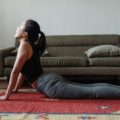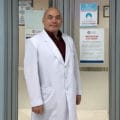Holistic health, holistic medicine, holistic practices — you’ve probably heard them all before. But what is holistic healing, really? Should you begin practicing or applying it for better health? This article sheds light on the basics of holistic healing.

What Is Holistic Healing: A Simple Definition
Also known as holistic medicine, it refers to the form of healing that takes into consideration a person’s physical, psychological, emotional, and spiritual condition. According to the philosophy of holistic medicine, these four factors must be balanced to achieve optimal health. This practice is coined holistic as this approach looks into a person’s health as a whole, seeing each aspect as important as the other.
To ensure that all aspects of a person’s being are looked into, holistic health practitioners utilize various forms of healthcare. For instance, to treat a patient complaining about migraines, they will not just prescribe medicine to alleviate the headaches and related symptoms. The holistic doctor will look deeper into the potential factors that are causing or exacerbating the migraines. These may include a poor diet, lack of sleep, underlying health problems, and stress.
In all, holistic medicine may involve medicine intake as well as lifestyle modifications to keep the patient’s illness and symptoms from recurring.
The Basic Principles of Holistic Medicine
To better understand what holistic healing is, let’s take a look at its basic principles:
- Everyone has the ability to help themselves heal.
- Patients are people — they are not the disease. Thus, the need for humane health practices.
- The patient and the doctor should work as a team that addresses all factors of health and well-being using a variety of healthcare methods and practices.
- Treatment should focus on getting rid of the condition’s cause, not just its symptoms.
Common Practices and Treatments Used in Holistic Healing
To treat the body, mind, emotions, and spirit, the following procedures and practices are utilized in holistic healing:
- Western or modern medications and procedures, including surgery
- Alternative and complementary therapies, such as naturopathy, homeopathy, chiropractic care, and acupuncture, among others
- Biology-based therapies, which include aromatherapy and herbal medicines
- Mind-body practices, most popular of which are yoga, meditation, deep breathing, and relaxation techniques
Is Holistic Medicine Right for You?
For best results, holistic healing must not be seen as a replacement for medical treatments. Rather, consider it as a complementary method to improve your health for the long-term. Here in the Philippines, there is a growing number of holistic care centers that offer integrative care programs designed to help enhance the efficacy of medical treatments and promote overall well-being.
As long as done right and with the right specialists, holistic healing or medicine could well fill the missing link in achieving optimal health.
This article was written to inform, not prescribe. If you are experiencing symptoms that may be of concern, consult a trusted healthcare professional near you.
Don’t miss any of our informative health articles — subscribe to our newsletter now! Follow Top Medical Magazine on Facebook, Instagram, and LinkedIn to stay updated, too!
Sources:
- What Is Holistic Medicine?
- What Are Holistic Practices?
- Holistic Healing: Six Steps to Holistic Health
- The 5 Aspects Of Holistic Health And Why They Are So Important





